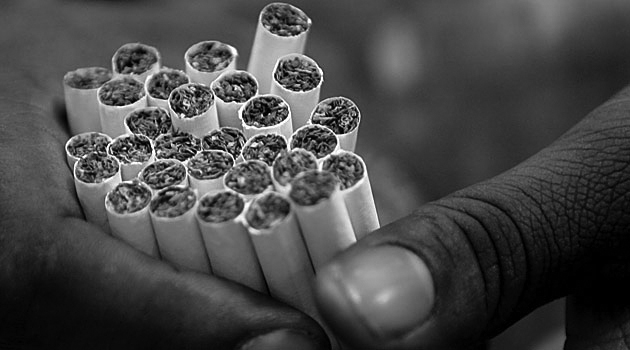Cigarette smuggling syndicates cause a massive headache for the government
GAZETTE REPORTER
In 2021, a truck carrying a consignment of 500 boxes of cigarettes from neighbouring Zimbabwe into Botswana was intercepted by customs officials at Ramokgwebana border post. According to a Botswana Unified Revenue Services (BURS) official, the 500 boxes of cigarettes represented loss of more than half a million pula in taxes and duties that could have been charged on the cigarettes.
The seizure illustrated that the Government of Botswana continues to experience tax leakages due to illicit tobacco trade, which does not only dent the pocket of the government but also presents a threat to public health and tobacco control efforts.
Botswana a lucrative market
A tax industry insider who spoke to The Botswana Gazette on condition of anonymity painted a grim picture of the sooty world of cigarette smugglers, emphasising that Botswana is a lucrative market where illicit tobacco products are sold and consumed. While BURS has officially acknowledged that the government is experiencing major revenue losses estimated to be in millions, the insider laughs it off as a ludicrous underestimate, pegging it instead at about P10 billion per year.
In Botswana, tobacco is triple-taxed, that is, customs duty (20%), tobacco levy (30%) and VAT (14%). This means less profit for manufacturers and ultimately leads to a breeding ground for illicit traders and syndicates to thrive.
Said the anonymous official source: “In Botswana, tax on cigarettes is high and most cannot afford it. In the regional context, Zimbabwe is the biggest producer, South Africa the biggest and most profitable market while Botswana, Namibia and Zambia are smuggling routes where illicit cigarettes are also sold and trafficked.
Collaborators inside the system help smugglers
“Cigarette smuggling is essentially a multi-stakeholder sector where syndicates work with different players in all these countries – border officials, customs clearing agents, transport operators, law enforcement, politicians right down to the street vendors. They are all involved. And guess who the biggest loser is? Government.”
The official explained warehouses are currently full of contraband seized by customs officials at border posts and in frontier villages, having been concealed among goods entering the country legally. Alcohol poses a similar threat to government coffers because even some multinational companies evade tax through ghost imports where they claim that stock is in transit when it would actually have been sold in the domestic market.
Chelsea, King’s Gate and Wish make up the bulk of contraband
The exact scale and number of cigarettes smuggled into Botswana is unknown. However, sources were unanimous that large amounts of cigarettes are smuggled into the country annually. Most seizures of illicit cigarette brands in Botswana currently are Chelsea, King’s Gate and Wish.
Public health
Tobacco is a major public health concern in Botswana. According to the Global Adult Tobacco Survey (GATS) conducted by the Ministry of Health, the prevalence of tobacco use in Botswana stood at 17.6% in 2017. Overall, almost 70 percent of tobacco smokers are daily smokers, whereas around 30 percent of tobacco smokers smoke occasionally. Among age groups, 48.9 percent of daily tobacco users aged 15-24 years use tobacco within 5 minutes of waking up while 51.5 percent of daily tobacco users aged 65 years and above use tobacco within 5 minutes of waking up.
Electronic Billing Machines
To curb tax non-compliance, BURS plans to introduce track-and-trace solutions through use of Electronic Billing Machines (EBMs) which will enable revenue authorities to monitor the tobacco trade. Some officials who spoke to the publication also called for handheld detecting machines at border posts to monitor illicit products through codes and stamps.
The system will ensure that the correct revenue is collected and curb smuggling of both tobacco and alcohol products because, according to the tax man, there is rife understatement in the tobacco and alcohol sectors. Some have also called for robust intelligence and paid informants on the ground to detect incidents of smuggling.

